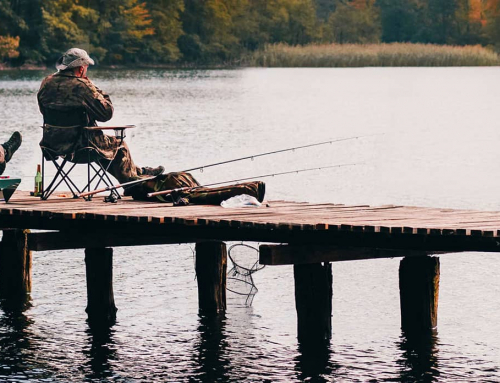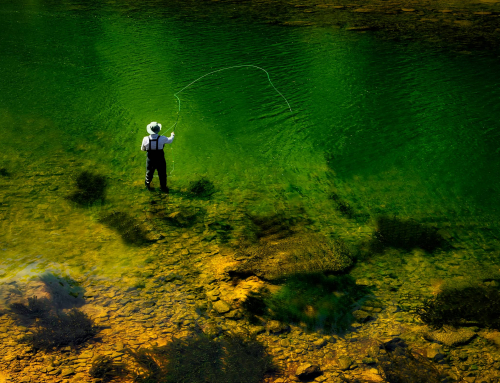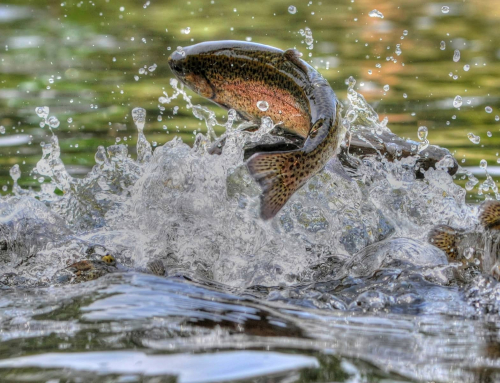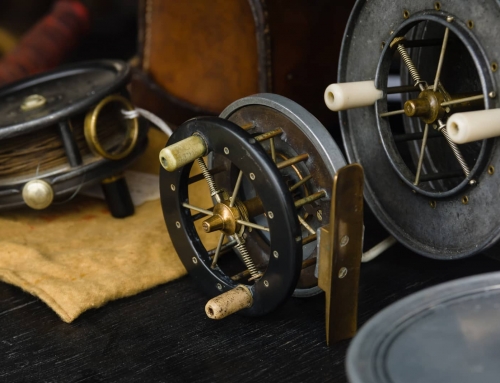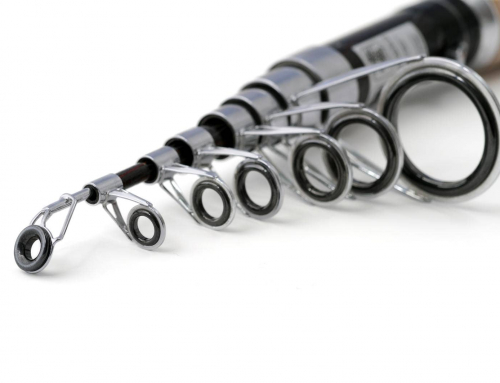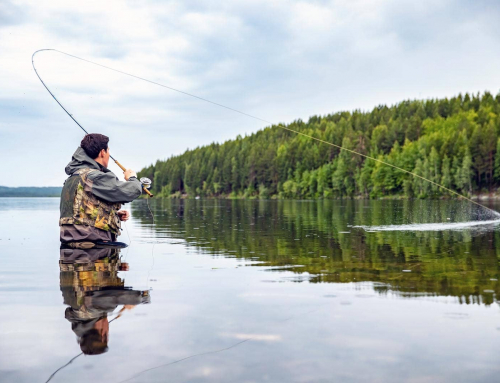We may earn money or products from the companies mentioned in this post at no additional cost to you.
The Benefits of Trout Fishing After Rainfall
Ah, the thrill of trout fishing. Whether you’re a seasoned pro or just getting your feet wet in fly-fishing, every angler knows that there is nothing quite like going out on the water and casting for some delicious Trout. But how does rain affect our chances of reeling them in? Can we still make a successful catch after a downpour? Is trout fishing good after rain? Let’s look at what experienced fishermen need to know about catching trout after rainfall.
Many experts agree that rainy weather can actually be good news for those looking to land some fish. Since rainwater adds fresh oxygen into streams and rivers, it often triggers an increase in insect activity – which is great news for hungry trout! With more food available, these fish will become more active, making them easier to spot and cast toward the shoreline.
At the same time, though, increased rainfall also brings with it higher river levels and faster currents – so choose where you are fishing carefully. It might be best to avoid deeper bodies of water if you’re not confident in your ability to adjust your technique accordingly; shallower areas may be preferable as they tend to remain calmer even during storms. So don’t let bad weather put you off – with careful planning and practice, fishermen of all skill levels can enjoy plenty of success.
Preparation For Post-Rain Trout Fishing
Trout fishing after rain can be a great time if you’re prepared. Having the right gear is critical, and it’s important to know what weather conditions there will be. You’ll want to choose your fishing spots wisely, too, so that you get the most out of your outing, no matter what type of trout fishing preparation you’ve done. Rain fishing is all about having the best setup for catching fish and enjoying yourself while doing it.
It’s also helpful to check reports on water levels in streams or rivers before heading out; this way, you can stay safe while still maximizing your chances of landing some trout. Make sure to pack supplies like extra lures or bait as well as proper clothing depending on the temperature outside – being comfortable will help make it easier to concentrate on reeling in those beauties! With preparation comes success, and when it comes to trout fishing after rain, it pays off big time.
Ideal Conditions For Trout Fishing After Rain
Have you ever wondered what the ideal conditions for trout fishing after rain are? As a trout fishing expert, I’m here to tell you that it’s possible to have successful and safe post-rain sessions. By following some simple tips, you can experience liberation in your next trouting adventure!
When considering trout fishing conditions post-rain, there are certain factors that should be taken into account. Firstly, the water temperature is an important consideration; coldwater species such as brown and rainbow trout prefer temperatures of 10°C or less. The amount of rainfall will also affect how much oxygen is available in the water – this has a direct impact on fish activity levels. Secondly, the flow rate of creeks and rivers will likely increase with higher amounts of runoff from hillsides and catchments. This means there could be more obstacles like logs or debris blocking access points.
To maximize safety while still having a good chance of catching trout post-rainfall, anglers should pay close attention to local weather forecasts and adjust their plans accordingly. Choose locations where the current isn’t too strong so that casting accuracy isn’t compromised. Also, dress appropriately – wear layers to keep warm if needed and make sure all equipment is securely fastened before setting off.
Trout usually feed well shortly after storms due to increased food availability created by churning up sediment along river beds – making now an ideal time to go trouting! With these considerations in mind, let’s move on to discussing types of bait best suited for success after rainstorms.
Types Of Bait To Use After Rain
The types of bait to use after rain can be the difference between a successful and unsuccessful trout fishing experience. Live bait such as worms, crickets, grasshoppers, and minnows are all popular choices for catching trout in wet conditions. Natural baits like salmon eggs, cheese or beef liver also work well when targeting this species. For those looking for something a little different, crayfish bait is an excellent choice because it mimics the food that these fish commonly feed on in rivers and streams. Additionally, spinner baits and jig baits have been known to produce some big catches during rainy weather if used properly.
No matter what type of bait you choose to use after rain, proper presentation is key to success. Trout tend to be more active when they feel secure from predators, so anglers should adjust their approach accordingly by using lighter lines and smaller hooks than usual. Also, make sure you pay attention to current flow speed and water temperature in order to get your lure or live bait where the trout are hiding out! With an understanding of how best to present your chosen bait, you’ll soon find yourself with plenty of exciting catches during wetter weather days ahead.
Lures And Techniques For Trout Fishing After Rain
Trout fishing after rain is a great opportunity to catch some of the largest catches. The right lures and techniques can make all the difference. Trout baits are one of the most important elements in post-rain fishing. It’s essential that you use something attractive enough to draw in trout while also being resilient enough to withstand any conditions caused by rainfall. In addition, certain techniques should be implemented depending on the current weather and water conditions, such as using spinners or streamers if there’s still flowing water from runoff due to recent rains. Otherwise, trolling with crankbaits works well for lakes slowly filling up with runoff.
Safety Tips For Trout Fishing After Rain
Trout fishing after rain can indeed be very successful, as the fish will often become more active in response to changing weather conditions. To ensure a safe and enjoyable experience for all involved, however, it’s important to remember certain safety tips. Before heading out on your next trout-fishing excursion after the rain, make sure you have the proper gear for fly-fishing or spinning in deep water. Float tubes are an excellent way to stay afloat and access areas of deeper water where trout may hide during storms, but they also come with some inherent risks–so take precautions like wearing lifejackets at all times. When possible, try not to venture into unfamiliar waters after heavy rains; rivers and streams can rise quickly overnight due to increased runoff from surrounding hillsides. Lastly, always check local forecasts before casting off so you know what kind of weather conditions you might encounter while out on the lake or river.
By taking these simple steps and preparing yourself beforehand, you’ll be able to enjoy a safe and rewarding day of trout fishing even after recent rainfall has stirred things up!
Conclusion: Is Trout Fishing Good After Rain?
It’s no secret that trout fishing after rain can be a great way to land your next big catch. With the right preparation, ideal conditions, and effective lures and techniques, you’re sure to get your share of bites! But with all the excitement surrounding post-rain trout fishing, it is important to remember safety first. Always wear proper clothing for protection from the elements and use caution when handling wet equipment.
When done correctly, trout fishing after rain can be an enjoyable experience filled with success. There are so many different bait types and lure combinations available to try out in order to find what works best for you. It never hurts to experiment either – who knows? You may even stumble upon a new technique or combination that will make everyone else envious!
Overall, there is nothing quite like heading out on a sunny day after some rain and casting off into the water in search of those elusive fish. I have seen firsthand how successful post-rain trout fishing can be if done properly.
